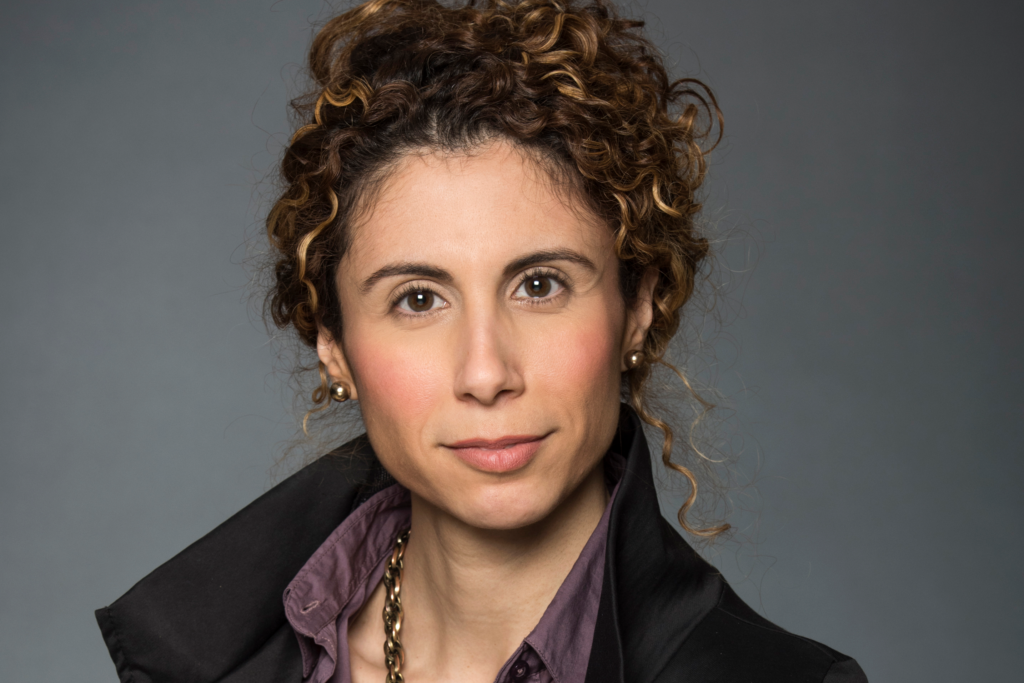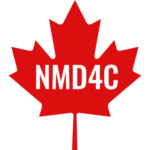Mireille Khacho

Lead - Basic Research Summer School Organizing Team (2026)
Associate Professor, Department of Biochemistry, Microbiology and Immunology, University of Ottawa
Canada Research Chair Tier II in Mitochondrial Dynamics and Regenerative Medicine | Member, Ottawa Institute of Systems Biology (OISB) | Co-Director, Éric Poulin Centre for Neuromuscular Disease (CNMD)
NMD4C Involvement: Pillar 1: Preclinical Science
Email MireilleResearch Interests: Muscle stem cells, muscle regeneration, mitochondria, mitochondrial dynamics, metabolism, aging, neuromuscular diseases
Academic web profileGoogle Scholar profile
LinkedIn profile
ResearchGate profile
Twitter profile
Lab website
Biography
Dr. Mireille Khacho is an Associate Professor in the Faculty of Medicine at the University of Ottawa. She holds the Canada Research Chair in Mitochondrial Dynamics and Regenerative Medicine and teaches in the Department of Biochemistry, Microbiology and Immunology. She also serves as Co-Director of the Éric Poulin Centre for Neuromuscular Disease (CNMD) and is a member of the Ottawa Institute of Systems Biology.
Dr. Khacho has made significant contributions to our current understanding of the role of mitochondrial shape in stem cell function and longevity. Her work revealed the molecular mechanisms of how mitochondrial shape can direct the fate of stem cells and promote differentiation. As a postdoctoral fellow with Dr. Ruth Slack, a notable leader in neurobiology, Dr. Khacho made the pioneering discovery that mitochondria are upstream signaling centers that dictate stem cell fate. This work has far reaching implications in aging and regenerative medicine and has now established a new area of research that bridges mitochondrial/metabolic regulation with aging and degenerative disease and stem cell function. Dr. Khacho’s research is focused on understanding key mitochondrial signaling pathways that are crucial for stem cell maintenance during aging and degenerative diseases. The discovery and characterization of these pathways would pave the way towards advancing stem cell therapies.
Students and Postdoctoral fellows interested in joining her dynamic lab are encouraged to contact Dr. Mireille Khacho
Recent Publications
Smith, IC, Sampaio, ML, Melkus, G, Meier-Ross, K, Chakraborty, S, Stotts, C et al.. Plasma-derived protein and imaging biomarkers distinguish disease severity in oculopharyngeal muscular dystrophy. J Neuromuscul Dis. 2025.12 (2)244-259 PMID:39973404
Sommers, O, Tomsine, RA, Khacho, M. Mitochondrial Dynamics Drive Muscle Stem Cell Progression from Quiescence to Myogenic Differentiation. Cells. 2024.13 (21) PMID:39513880
Minarrieta, L, Annis, MG, Audet-Delage, Y, Kuasne, H, Pacis, A, St-Louis, C et al.. Mitochondrial elongation impairs breast cancer metastasis. Sci Adv. 2024.10 (45)eadm8212 PMID:39504368
Triolo, M, Khacho, M. Protocol to monitor live-cell, real-time, mitochondrial respiration in mouse muscle cells using the Resipher platform. STAR Protoc. 2024.5 (4)103330 PMID:39305486
Iqbal, MA, Bilen, M, Liu, Y, Jabre, V, Fong, BC, Chakroun, I et al.. The integrated stress response promotes neural stem cell survival under conditions of mitochondrial dysfunction in neurodegeneration. Aging Cell. 2024.23 (7)e14165 PMID:38757355
Cairns, G, Thumiah-Mootoo, M, Abbasi, MR, Gourlay, M, Racine, J, Larionov, N et al.. PINK1 deficiency alters muscle stem cell fate decision and muscle regenerative capacity. Stem Cell Reports. 2024.19 (5)673-688 PMID:38579709
Triolo, M, Baker, N, Agarwal, S, Larionov, N, Podinić, T, Khacho, M et al.. Optic atrophy 1 mediates muscle differentiation by promoting a metabolic switch via the supercomplex assembly factor SCAF1. iScience. 2024.27 (3)109164 PMID:38414856
Susser, LI, Nguyen, MA, Geoffrion, M, Emerton, C, Ouimet, M, Khacho, M et al.. Mitochondrial Fragmentation Promotes Inflammation Resolution Responses in Macrophages via Histone Lactylation. Mol Cell Biol. 2023.43 (10)531-546 PMID:37807652
Triolo, M, Wade, S, Baker, N, Khacho, M. Evaluating mitochondrial length, volume, and cristae ultrastructure in rare mouse adult stem cell populations. STAR Protoc. 2023.4 (1)102107 PMID:36853728
Baker, N, Wade, S, Triolo, M, Girgis, J, Chwastek, D, Larrigan, S et al.. The mitochondrial protein OPA1 regulates the quiescent state of adult muscle stem cells. Cell Stem Cell. 2022.29 (9)1315-1332.e9 PMID:35998642
See more on PubMed